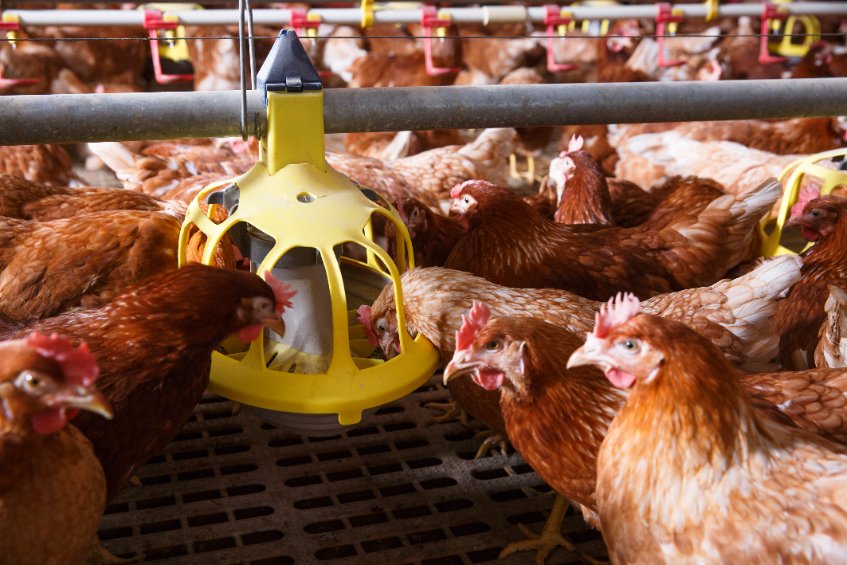
Welsh authorities have confirmed the country's first bird flu case since 1 October following a significant uptick in UK outbreaks in the past month.
The Chief Veterinary Officer (CVO) for Wales confirmed the presence of highly pathogenic avian influenza H5N1 in poultry at a site in Anglesey.
A 3km Protection Zone and 10km Surveillance Zone have been declared around the infected premises to limit the risk of disease spread.
Within these zones, bird movements and gatherings are restricted and all holdings that keep birds must be declared.
It is the first confirmed case of avian influenza in Wales since the start of this month.
The Welsh government said it was 'vital' for keepers of birds to remain vigilant for the disease, while ensuring they had the 'very highest levels' of biosecurity in place.
The CVO said: "All keepers of kept birds should be vigilant for signs of the disease such as increased mortality, respiratory distress and drops in food or water intake, or egg production.
"Consult your veterinary surgeon in the first instance if your birds are unwell. If you or your vet suspect that avian influenza could be causing illness in your birds, you must, by law, report this to APHA."
In England, there have been 43 cases of highly pathogenic avian influenza since the start of this month.
A mandatory poultry housing order is currently enforced across Norfolk, Suffolk and parts of Essex, due to the high rate of infections in this region.
And a separate regional Avian Influenza Prevention Zone (AIPZ) without housing measures remains across Cornwall, Devon, Isles of Scilly and parts of Somerset.
Elsewhere in the UK, Scottish authorities recorded two cases of the disease since 1 October - near Tankerness, Orkney, and on the island of Lewis, Outer Hebrides.
A case of bird flu was also confirmed in captive birds in Co Down, Northern Ireland, the first case of the disease in the province since February 2022.
Christine Middlemiss, the UK's CVO, encouraged all bird keepers - including commercial farmers and backyard keepers - to ensure good levels of biosecurity.
She said the government expected the risk to continue to rise over the coming months as migratory birds return to the UK.
"We are now taking further action to help protect flocks from this highly infectious and devastating disease," she explained.
"Keepers in hotspots must continue to follow strict biosecurity standards to protect their flock, and should use the next few days to prepare and move their birds indoors."
